Millie Marconi & Kat Suy’s Raise Journey
Both Millie & Kat have been in the start-up space for the last 5+ years, they both applied to a Antler’s VC start-up accelerator program with very little expectation of anything to come from it. It was pre-seed, they were both solo founders and happened to be enrolled in the same cohort.
The two formally met, hit it off, started working together and quickly formed their ideal problem/solution and got to work building out the business plan of a VC backed business.
The problem: Hiring is still inefficient and costly, with recruiters spending countless hours manually reviewing CVs and struggling to make fair and timely decisions.
The solution: Yesterday streamlines hiring by automating candidate screening using AI and insights from hiring psychology.
Over 8 weeks, they met with many VCs, angels and advisors, practised pitching weekly with an audience and then went on to pitch to an investment committee (IC) with a SAFE. The IC consisted of many VCs from a global day one investor who were running the accelerator and additionally external VC firms and many angel investors. The VC running the accelerator had the first rights to invest — Millie & Kat were thrilled they decided to proceed.
Both Founders felt it was a pretty gruelling process and coming out the other side see a lot of room for improvement in the space and process.
In this episode, we cover:
[00:00] About Yesterday
[01:15] Why did you start Yesterday and what’s your career history?
[06:05] How have your past jobs and businesses prepared you for launching Yesterday?
[11:07] How did Antler’s program influence the way you fundraised?
[13:20] How have you fed back to each other as Co-Founders?
[17:28] What are some of the early decisions you made about the type of investors you would approach and how much you would raise?
[22:00] What did you learn from seeing your counterparts raise in Europe?
[24:48] What was the Australian market like when you were raising 6 months ago?
[31:00] What challenges did you constantly find yourself up against?
[35:12] What did it mean to go for VC money instead of other investment options?
[36:00] What was the most memorable moment of the fundraise?
[40:27] What are the top 2-3 things that Founders need to think about and prepare for before fundraising?
[43:40] What’s the one tip you have for Founders who are in the middle of fundraising?
[46:27] If you could go back and do it again, what would you do differently?
Some takeaways:
For Founders raising 💰
Investors should provide more than just money and it’s important to make decisions about the type of investors you approach at the beginning to set yourself up for success. Whether you have specific department gaps (e.g. engineering, product, finances) and want to find people who have ample experience there, or if you’re looking for investment/recruitment introductions, remember that you should look for investors who can support you in exchange for that equity as well.
The expectations for pre-seed start-ups is changing as we’re in a traction heavy world. You may have investors asking you for signs of revenue, letters of intent or waitlist subscribers. So, it’s important to balance building the business with fundraising to make sure you can demonstrate some growth while raising.
For aspiring founders 🤩
Spend some time working for early-stage VC, Angel, Crowdfunded and bootstrapped start-ups to get a feel for what it looks like on the inside. This will offer you a great opportunity to see how to scale a business and learn what not to do. Both Kat and Millie spent half a decade working for start-ups before diving head first into Yesterday and attributed this experience to some of their current success as Founders.
Listen now on Apple, Spotify, Overcast, and YouTube.
Where to find Millie Marconi & Kat Suy:
• Millie: LinkedIn | Yesterday
Where to find Jade Buffong:
• LinkedIn | Newsletter
Referenced:
Lightning-round answers:
Were there any tools you relied on heavily for your fundraising? (e.g. a CRM, pitch deck creator etc)
We used ChatGPT as a 'virtual VC' on the investment committee for our pitch, we would provide our pitch as a script and prompt ChatGPT to ask and critique the pitch. We would speak the answers via dictation in real time and have ChatGPT provide feedback on our answers and ask follow on questions. This really helped us prepare and simulate the real life experience of pitching to an investment committee. We would also ask ChatGPT to be 'mean' and probe specifically on certain elements so we had a level of confidence on the aspects we expected to be asked about.
We also used Balsamiq to help create quick wireframes which we could validate with customers and use to help demonstrate our products functionality in our pitch deck.
What should Founders look out for?
A founder should really understand the reporting and governance that is associated with an investment, it's important to ensure the investor feels really committed to your vision and there's enough trust and freedom to build your business. We have a great relationship with our investors and they back our ability to deliver with a lot of support. However that's not the case for all funds. Do your own due diligence to ensure your values and vision for building your business align.



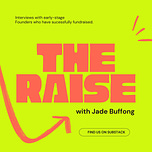



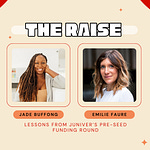
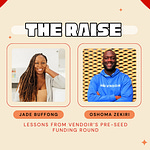
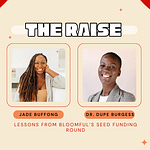

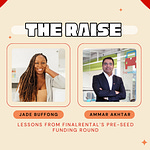

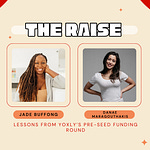
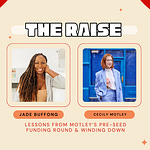
Share this post